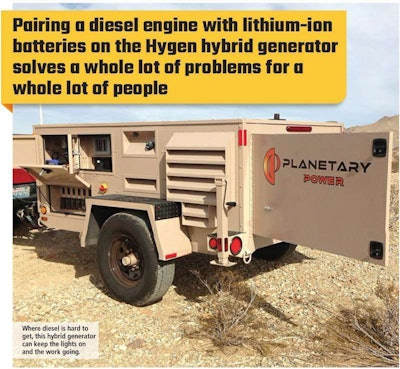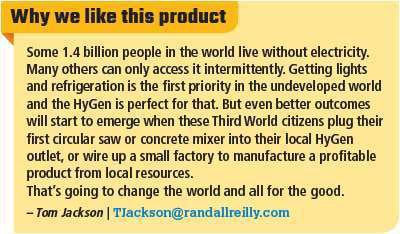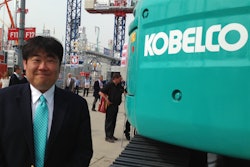
Mining asteroids in space may not seem like something that would produce benefits for poor people in the Third World or construction contractors here on earth. But an idea that started in the private space exploration sector has now evolved into a new product that stands to benefit both – Planetary Power’s HyGen hybrid diesel-electric generator. It was Planetary Power’s first mission that identified the need to create power and electricity in outer space – one of the applications being asteroid mining. Planetary Power took this need and began development of a direct solar powered engine called SUNsparq. In developing the hybrid system (energy production and storage) used in SUNsparq, the engineers quickly realized that a similar system could be engineered using a diesel engine, high efficiency alternator, and energy storage. This developed into HyGen as a faster-to-market alternative while the next generation solar-powered engine for SUNsparq is developed.
Diesel power, battery storage
If you understand how a Chevy Volt works, you have the basic concept of the HyGen – an internal combustion engine combined with a battery. Like the Volt, it can produce electrical power directly off the engine, or when loads are lighter, out of the batteries without the engine running. HyGen is a serial hybrid; this means the power production is “decoupled” from the load, reducing the stress on the engine. “Pairing a generation solution with energy storage gives you a lot of flexibility,” says Randy Hart, Planetary Power’s hybrid product manager. “The most reliable and robust system out there is a diesel generator. But it’s old technology and the way that it is currently applied, the engine must be running to provide power, and the fuel efficiency varies significantly depending upon the load. The lifespan of those diesel engines is measured in hours of runtime and is relatively short when under continuous duty.
Numerous advantages
Planetary Power found that pairing energy storage and a smart control system with a high-efficiency diesel generator produces a wide range of advantages compared to a diesel-only generator:
1. The engine does not have to be running the entire time you need power.
2. When the engine is running, it is at its most efficient rpm, which extends engine life.
3. Total fuel consumption to meet load drops in some cases over 80 percent.
4. Engine noise is greatly reduced.
5. The quality of the electricity is improved to the level needed for some of today’s electronics thanks to the buffer of the batteries and the inverter between the engine and the output.
The HyGen system produces 60 kW of peak, 30 kW of surge output and 20 kW of continuous power. A three-cylinder Perkins 403 F/D series engine turns the generator which sends the electricity into lithium-ion battery modules that have an estimated life of 10 years. Depending on the load, the HyGen can run up to 20 hours on battery power alone, and multiple units can be networked together to meet high demand applications.
Plug and play energy
Planetary Power has also designed the HyGen to plug and play with other energy producing technologies such as solar or wind systems. “HyGen can make the most of renewable energy sources regardless of whether or not the sun is shining or the wind is blowing,” Hart says. 
But the range of future applications is tremendous: remote fishing villages in Alaska, construction contractors and military personnel operating in roadless environments, or scientific research stations located at the ends of the earth – anywhere that delivery of diesel is expensive and dangerous. Hart says he also sees regular construction contractors finding benefits to running the HyGen, especially when powering jobsite trailers. In his previous work with equipment rental companies, Hart says he found that contractors often greatly over-specified their trailer generators resulting in a lot of wasted fuel, extra maintenance and noise.









